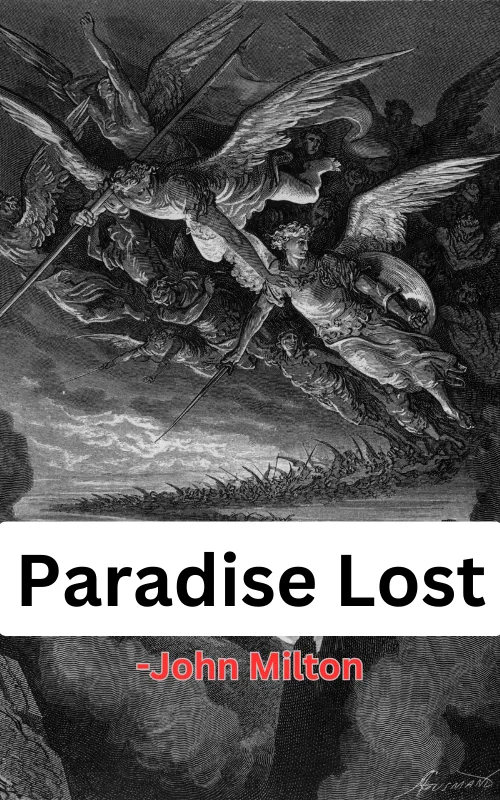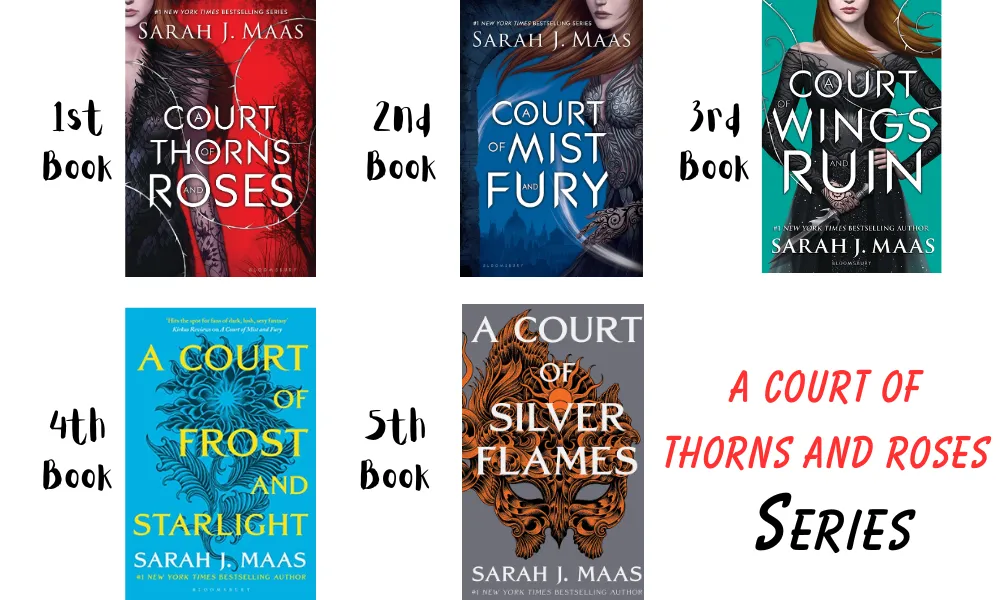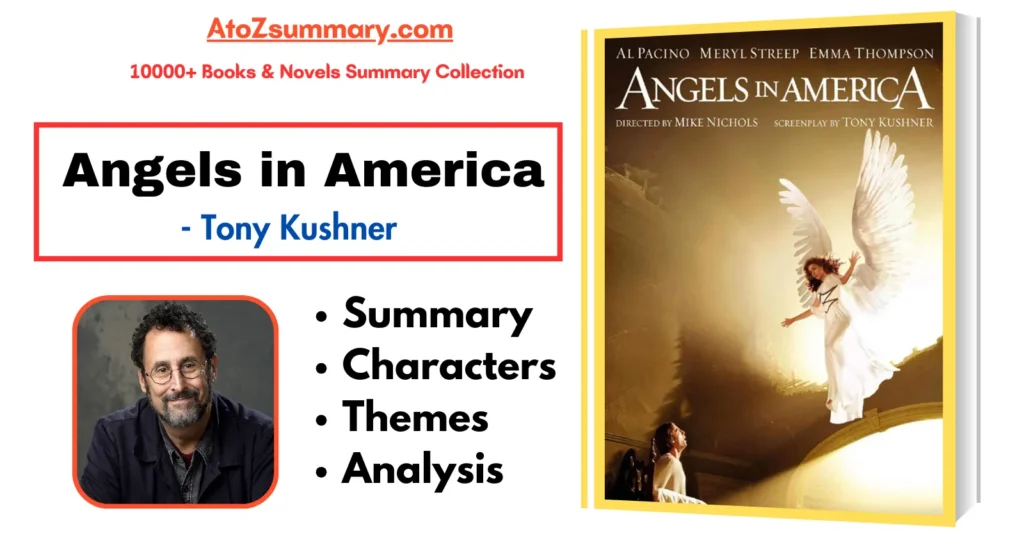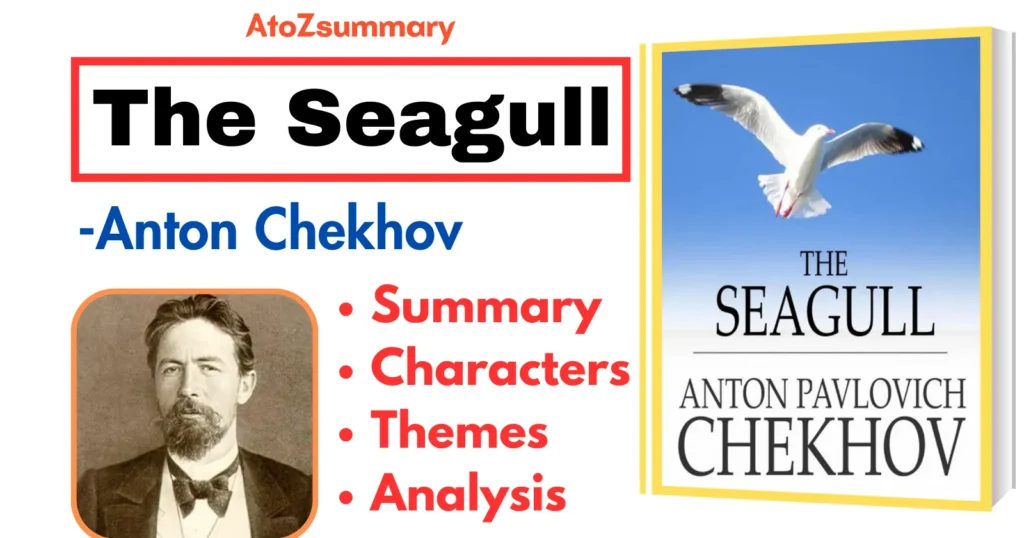About Poem: Paradise Lost
| Poem Title | Paradise Lost |
| Author | John Milton |
| Genre | Epic poem |
| Publication date | First published in 1667, with a second edition in 1674 |
| Theme | The fall of humanity and the hope of redemption |
| Form | 12 books, over 10,000 lines, in blank verse |
| Setting | Primarily set in Heaven, Hell, and Earth |
| Literary devices | Alliteration, assonance, simile, metaphor, personification, epic simile, epic catalogue, epic question, invocation |
Themes: Paradise Lost
The main themes of “Paradise Lost” by John Milton are:
- The Fall of Humankind ➤ The poem explores how Adam and Eve’s disobedience led to the loss of paradise, emphasizing the consequences of human actions.
- Satan’s Rebellion ➤ It depicts Satan’s rebellion against God, highlighting themes of pride, ambition, and the consequences of evil choices.
- Free Will and Obedience ➤ The poem delves into the idea of free will and the importance of choosing to obey God, even in the face of temptation.
- Redemption ➤ It addresses the possibility of redemption and forgiveness, even after humanity’s fall from grace, offering hope and salvation.
- The Divine Plan ➤ “Paradise Lost” reflects on God’s mysterious and divine plan for the universe, which humans may not fully understand.
- The Power of Knowledge ➤ The pursuit of knowledge and wisdom, as symbolized by the forbidden fruit, is a central theme, exploring both its potential and dangers.
- The Nature of Good and Evil ➤ The poem examines the nature of good and evil and how they exist in a complex moral universe.
Characters: Paradise Lost
The main characters in “Paradise Lost” by John Milton in simple language:
- God (the Father) ➤ The all-powerful and benevolent creator of the universe.
- Satan (Lucifer) ➤ The fallen angel who leads a rebellion against God and is cast into Hell.
- Adam ➤ The first man created by God, who succumbs to temptation and disobeys God’s command.
- Eve ➤ The first woman, created from Adam’s rib, who also disobeys God’s command after being tempted by Satan.
- Raphael ➤ An archangel who visits Adam and Eve to warn them about Satan’s intentions and to share divine knowledge.
- Michael ➤ Another archangel who ultimately defeats Satan and expels him from Eden.
“Paradise Lost” Summary & Analysis (Book 1-12)
Paradise Lost is an epic poem written by John Milton, originally published in 1667 in ten books, and later expanded to twelve books in its second edition in 1674. The poem explores the Christian story of the Fall of Man, drawing from the Bible’s Book of Genesis. It is considered one of the greatest works of English literature and is a classic example of the epic genre.
Book 1
The poem opens in medias res, or in the middle of things, with Satan and his fallen angels, who have been cast out of Heaven. They find themselves in Hell and plan their revenge against God. Satan’s character as a defiant and charismatic figure is introduced.
Book 2
The fallen angels regroup and decide to hold a council to discuss their future actions. Satan volunteers to journey to Earth and corrupt God’s new creation, humankind. He is depicted as both heroic and tragic.
Book 3
The scene shifts to Heaven, where God and his Son are aware of Satan’s plans. God foresees the fall of humanity but also their eventual redemption through his Son. The Son offers to sacrifice himself for humanity’s salvation.
Book 4
The focus returns to Satan as he enters the Garden of Eden in the form of a serpent. He observes Adam and Eve and becomes envious of their happiness. Satan’s evil intentions and deception become evident.
Book 5
Raphael, an angel, visits Adam and Eve and warns them about Satan’s presence and his evil intentions. He recounts the rebellion in Heaven and explains the consequences of disobedience. The couple’s innocence and love are highlighted.
Book 6
Raphael continues his narration and describes the War in Heaven, where the rebellious angels were defeated by God’s forces. This battle emphasizes the consequences of disobedience and the importance of obedience.
Book 7
Raphael finishes his story and emphasizes the importance of free will. Adam and Eve are left with the knowledge of good and evil, and Raphael departs.
Book 8
Adam and Eve spend their last night in Eden, and their love and purity are celebrated. The couple’s virtues and their impending fall are juxtaposed.
Book 9
Satan returns to Eden and tempts Eve into eating the forbidden fruit. She, in turn, persuades Adam to join her in disobedience. The fall of humanity occurs as they both consume the fruit.
Book 10
God passes judgment on the guilty pair, and they are expelled from Eden. Satan’s punishment is pronounced, and he and his followers are transformed into serpents. The consequences of disobedience are made clear.
Book 11
The angel Michael visits Adam and informs him of the future of humankind, emphasizing that the Son of God will eventually provide salvation. Adam is given insight into the events of the future.
Book 12
The poem concludes with Adam and Eve departing from Eden and facing an uncertain future. They find solace in each other and in the hope of redemption through God’s mercy. The poem ends on a note of redemption and the promise of salvation.
FAQs: Paradise Lost
What is the meaning of the poem Paradise Lost?
The meaning of the poem paradise lost is: the fall of humanity and the hope of redemption.
What is the message from Paradise Lost?
The message from “Paradise Lost” is about the consequences of disobedience and the hope for redemption.
What is the most famous line from Paradise Lost?
The most famous line from Paradise Lost is: Better to reign in Hell, than serve in Heaven. This line is often interpreted as a statement of Satan’s pride and ambition, but it can also be seen as a more general statement about the importance of freedom and independence.
Why is Paradise Lost controversial?
Some people find the poem’s portrayal of God and Satan to be controversial.
What is the sin and death in Paradise Lost?
Adam and Eve’s disobedience to God leads to sin and death entering the world.
What is Satan’s punishment in Paradise Lost?
Satan is cast out of Heaven and into Hell, where he will suffer for eternity.
Why is Paradise Lost so important?
Paradise Lost is important because it teaches us about the consequences of making wrong choices and the possibility of redemption.
Is Paradise Lost hard to read?
Yes, Paradise Lost is a challenging poem to read, but it is also a rewarding one.
What seems to be Satan’s greatest desire in Paradise Lost?
Satan’s greatest desire is to overthrow God and rule in his place.
Why does Adam fall in Paradise Lost?
Adam falls because he is tempted by Satan and he loves Eve more than he loves God.






![The Catcher In The Rye Summary, Themes & Characters [by J. D. Salinger] The Catcher In The Rye Summary, Themes & Characters [by J. D. Salinger]](https://atozsummary.com/wp-content/uploads/2023/06/The-Catcher-In-The-Rye-Summary-Themes-Characters-by-J.-D.-Salinger.webp)




